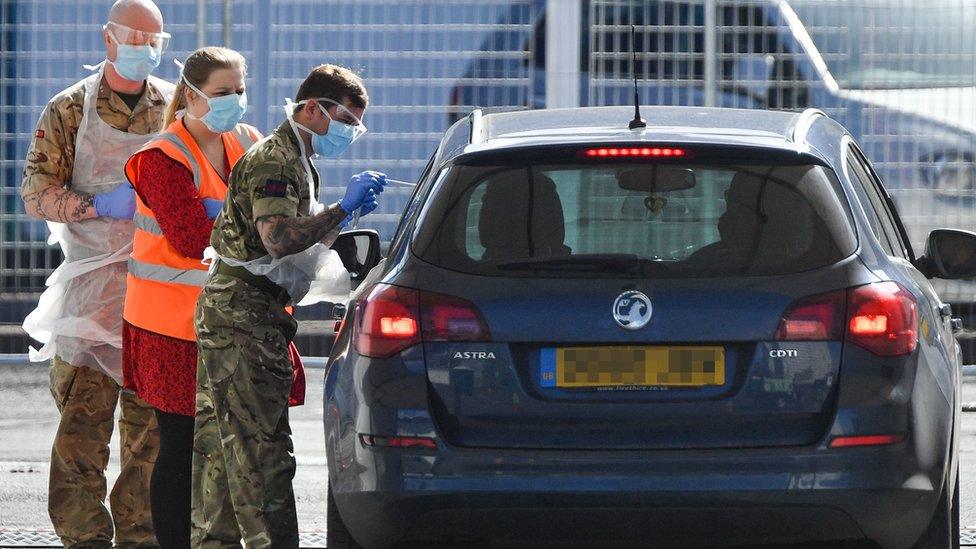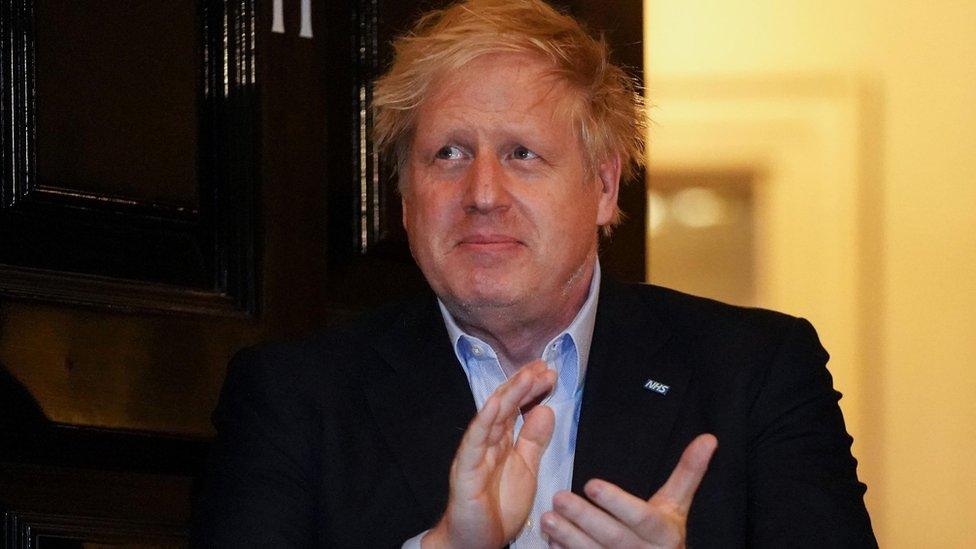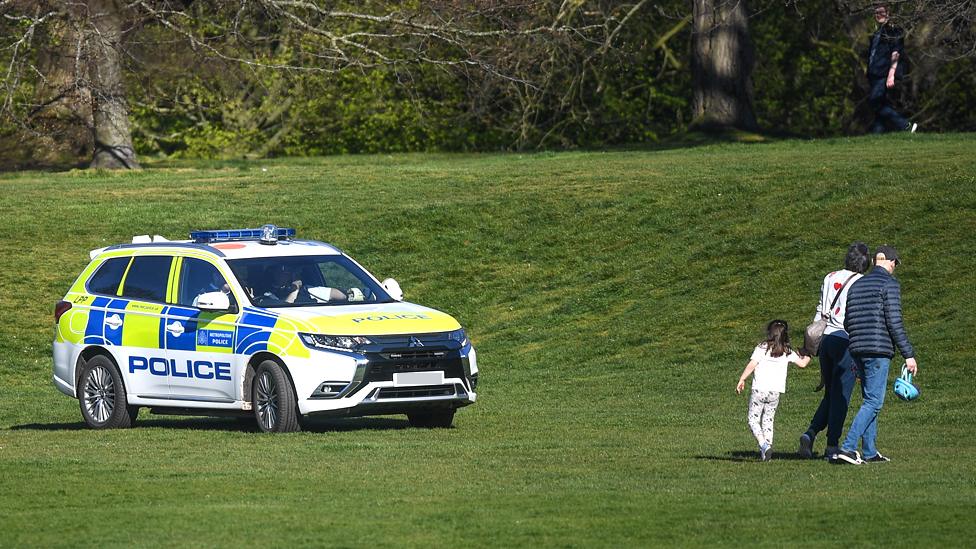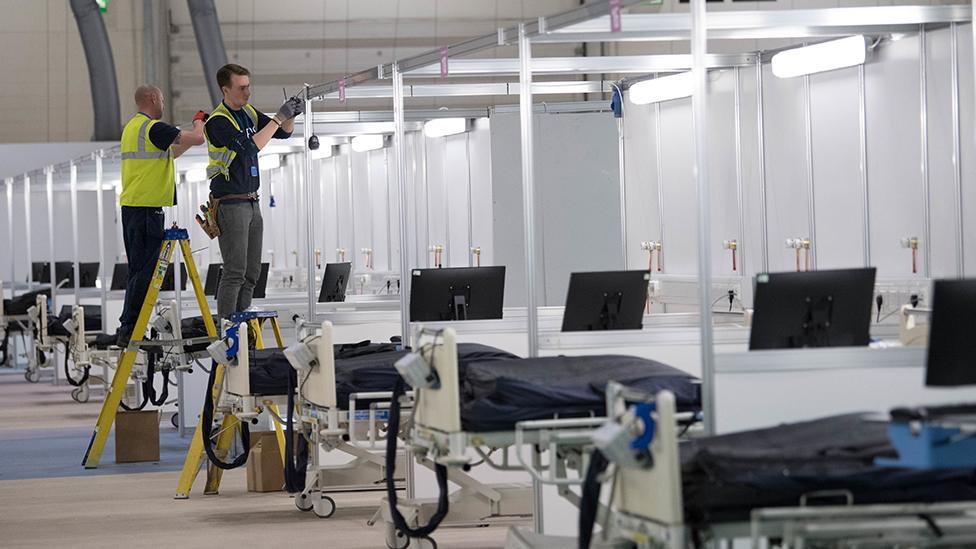Coronavirus: West Midlands hospitals 'ready' as deaths increase
- Published

Andy Street said the region's hospitals "have capacity" for patients
The mayor of the West Midlands has insisted the region's hospitals are prepared despite a spike in the number of coronavirus-related deaths.
Andy Street said the area was "clearly the next through the curves" after 34 deaths were recorded there on Sunday.
This follows 170 deaths recorded in the 24 hours up to 1700 BST on Friday, which compared to 127 deaths over the same time period in London.
Mr Street said hospitals in the region had "prepared well".
Cabinet minister Michael Gove has called the wider Midlands region "a particular area of concern", with a total 212 deaths reported there on Friday.
The number of hospital admissions across the whole Midlands has risen by 47%, while in London it has fallen, Mr Gove said.
Hospital trusts in the West Midlands have recorded a total of 728 deaths, compared with 1,353 deaths recorded across the capital.

Analysis
Michele Paduano, BBC Midlands Today health correspondent
Nobody knows quite how Covid-19 first arrived in the West Midlands, but Wolverhampton was the first hot spot with a clutch of nine cases emanating from a church group.
Once rooted, the epidemic seems to have spread to Dudley and then, throughout Birmingham and Black Country conurbation. Clearly, it's easier for a virus to spread in densely populated areas such as the Black Country.
Data from the Intensive Care National Audit Research Centre (ICNARC) examining the first 2,621 admissions to critical care also shows an abnormally high number - 27% - are from the black and Asian communities. Intensive care patients from the black community appear particularly at risk.
Both these communities and the population in general have high levels of obesity, smoking, heart disease and diabetes which are all factors which lead to severe disease and poor outcomes.

Mr Street said: "As it stands this morning all of our hospitals have prepared well, have capacity, so the reassuring thing for citizens is that at least there is available and appropriate medical care should they need it."
The Conservative mayor's spokesman said the region's large population, its global nature and its role as a transport hub were factors behind the high number of Covid-19 cases.

Coronavirus testing for NHS workers has been taking place at Edgbaston cricket ground in Birmingham
The Nightingale Hospital, being built at the Birmingham NEC, is set to open on 12 April with a 500-bed capacity.
Dr Rinesh Parmar, an intensive care doctor in the West Midlands, said: "Over the last few weeks particularly, we have been ramping up what we can do, ensuring that we clear out as many bed spaces we can, increase the number of beds that we can accommodate on in our intensive care units.
"At the moment, everything that we are seeing is that the hospitals are coping but it is a changing situation that we keep on review every day."

A SIMPLE GUIDE: How do I protect myself?
AVOIDING CONTACT: The rules on self-isolation and exercise
LOOK-UP TOOL: Check cases in your area
MAPS AND CHARTS: Visual guide to the outbreak
VIDEO: The 20-second hand wash

Follow BBC West Midlands on Facebook, external, on Twitter, external, and sign up for local news updates direct to your phone, external.
- Published6 April 2020

- Published6 April 2020

- Published5 July 2023

- Published17 April 2020
